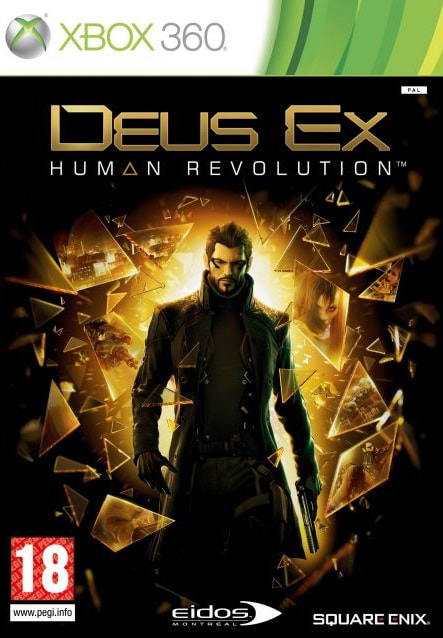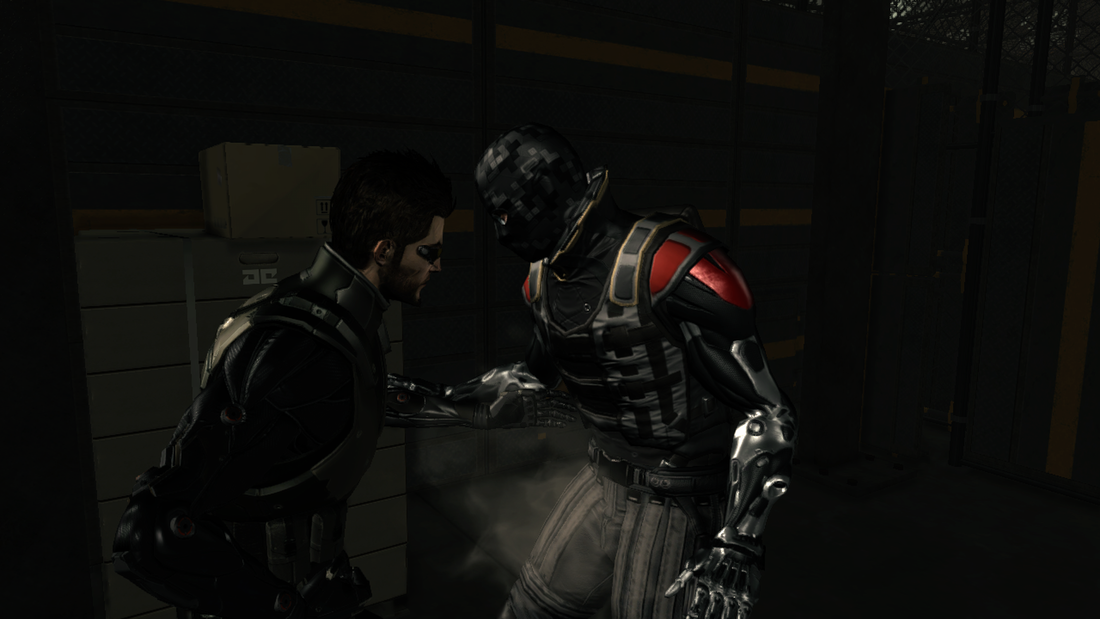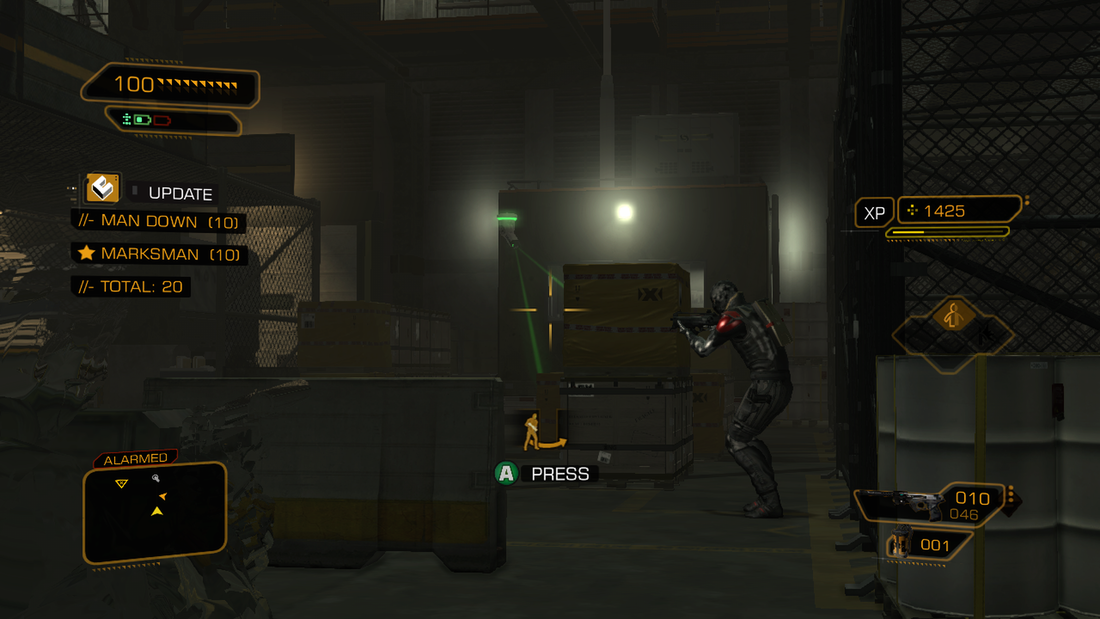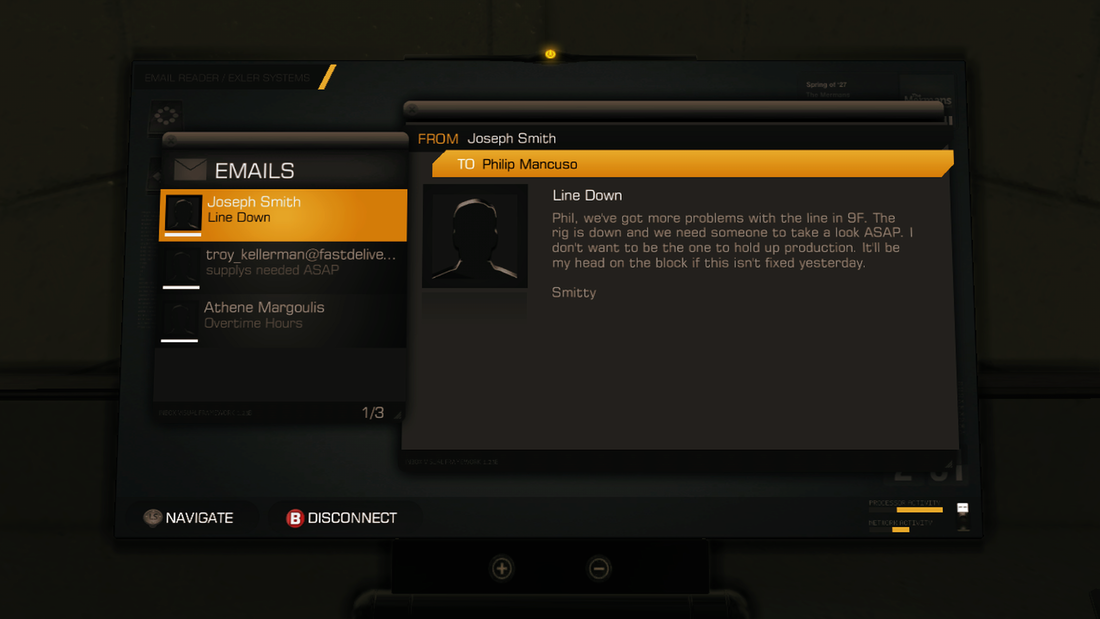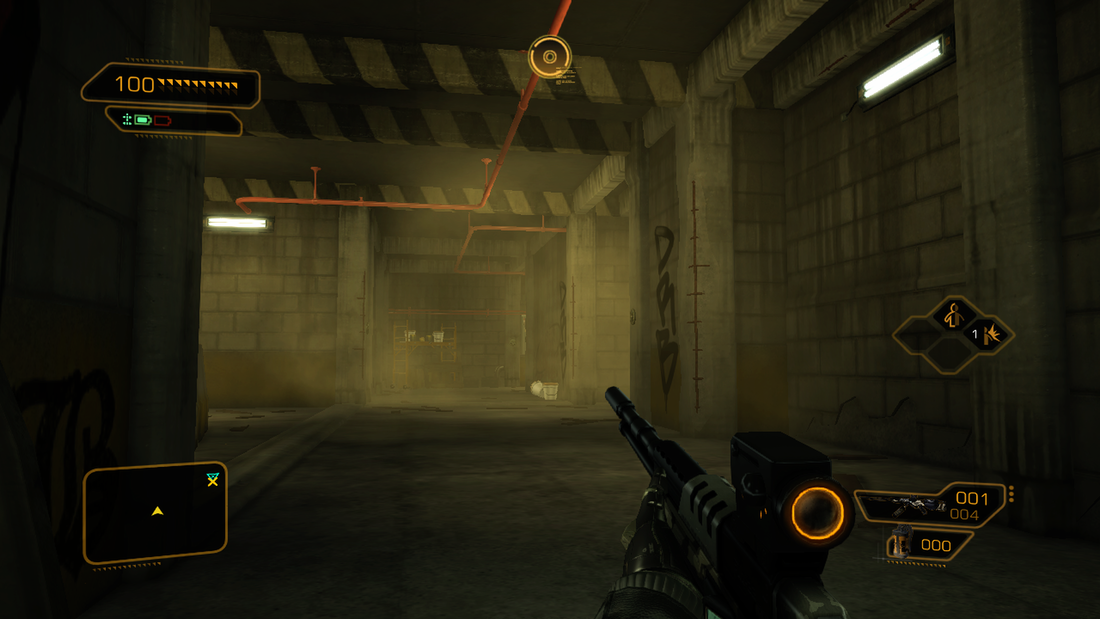DEUS EX: HUMAN REVOLUTION (X360)
Often regarded as one of the most influential PC games ever released, Deus Ex brought cyberpunk role-playing to the mainstream. Emergent gameplay, difficult choices and unparalleled depth won over legions of gamers. Despite a less than stellar sequel, as well as uncertainty as to the series’ future with Eidos’s absorption by Square Enix, Human Revolution debuted in 2011, with Eidos Montreal on development duties. Despite a few flaws, it’s a great RPG that is worth any fans time so long as you can look past those inconsistencies.
Serving as a prequel to previous games, Human Revolution follows an ex-SWAT cop turned security officer Adam Jensen, protecting a company who are leading in augmentations. After a terrorist attack leaves him near death, he is fitted with advanced augmentations that bring Sarif Industries such controversy. Now, having been turned into a superhuman soldier, it’s up to Jensen to track down the source of the attacks while battling a larger conspiracy to boot. It offers a thoughtful exploration of technology-dominated future, mega-corporations and the power they hold, and the changing perspectives of social classes. The story features excellent scripting, and remains engaging despite Jensen serving as a fairly bland lead, with basic motivations.
Deus Ex: Human Revolution portrays a future utterly dependant on technology and cybernetics, as evidenced by Jensen
Much like its predecessors, this is an open-ended RPG with flexible mission design. Environments feature a multitude of approaches, as hidden vents allow for stealth and even ways to bypass gunfights. It’s definitely a stealth game at heart; though the level design does allow for a fair amount of cover should you become detected. Gunplay feels tight, despite an odd cover system forcing you to hold a trigger, and stealth allows you to pacify or outright butcher enemies. This multifaceted approach also applies to upgrades, allowing you to equip Jensen with a myriad of abilities. Stealth fans can add an invisibility cloak to their arsenal, while gunners may instead opt for less recoil. Either way feels sound, and this beautifully unscripted mission design encourages experimentation, replayability and careful planning. It’s considerably deeper than Invisible War, making for a remarkable console conversion at a time where console ports of PC RPGs were a mixed bag.
Jensen’s mission takes him through several mini-hubs, located between Detroit, Shanghai and Montreal. You can create shortcuts through exploration, find hidden secrets and partake in side missions, which is perhaps consumes the most amount of your time. While some can be menial fetch-type quests, many feel like fully featured secondary stories. One of the more remarkable ones involves taking down a crooked cop, and elements such as whether you are detected by rival gangs, what you do with the weapon stashed for you and how you approach neutralising the cop all affect the outcome, rewards and perception given by NPCs. Exploring the multitude of outcomes to what should be menial extras is a genuine delight.
Jensen’s mission takes him through several mini-hubs, located between Detroit, Shanghai and Montreal. You can create shortcuts through exploration, find hidden secrets and partake in side missions, which is perhaps consumes the most amount of your time. While some can be menial fetch-type quests, many feel like fully featured secondary stories. One of the more remarkable ones involves taking down a crooked cop, and elements such as whether you are detected by rival gangs, what you do with the weapon stashed for you and how you approach neutralising the cop all affect the outcome, rewards and perception given by NPCs. Exploring the multitude of outcomes to what should be menial extras is a genuine delight.
Everything you do in this game, right from the first mission, carries consequences further down the line. Tense dialogue battles, where you often must gauge a character’s response to several tones of voice, can have disastrous impacts hours after you complete them. What may seem like a morally righteous choice at the time may prove to be a pain in your ass later on. Smoothing things over can bypass entire combat encounters – such as when you talk to a legendary warrior priest – or choosing the wrong dialogue will throw you in at the deep end. It’s a tense game, but one which rarely punishes you, bar perhaps sending you into a tough fight, but with smooth gunplay and weapon upgrades available it never becomes a pain.
So it’s a shame then when this brilliance is marred by some frankly horrid boss fights. Developed by an outside studio as an afterthought, these encounters stick out like a sore thumb. Take Barrett, the first boss, for example. He is a behemoth soldier with a mini-turret, forcing you into a small arena with no stealth. If you’ve been perhaps prioritising stealth upgrades and don’t have any upgraded firearms, there’s almost no flexibility in this fight. Though others do add some degrees of change, most force you into one path. It’s just shocking how out of place these fights feel, and no wonder they were revamped in a later Director’s Cut. It might sound petty, but these fights really drag the atmosphere, pacing and enjoyment of the game down.
So it’s a shame then when this brilliance is marred by some frankly horrid boss fights. Developed by an outside studio as an afterthought, these encounters stick out like a sore thumb. Take Barrett, the first boss, for example. He is a behemoth soldier with a mini-turret, forcing you into a small arena with no stealth. If you’ve been perhaps prioritising stealth upgrades and don’t have any upgraded firearms, there’s almost no flexibility in this fight. Though others do add some degrees of change, most force you into one path. It’s just shocking how out of place these fights feel, and no wonder they were revamped in a later Director’s Cut. It might sound petty, but these fights really drag the atmosphere, pacing and enjoyment of the game down.
Human Revolution affords the player a lot of choices. Aggression can yield good results, but often a subtler approach is more effective
Though the game looks pretty decent, with lovely environments and a great physics engine which allows you to create your own paths, characters often look stilted and dated. The facial animation is pretty laughable, which is a shame considering how story-driven Human Revolution is. The sound at least fares much better, with terrific voice acting and amazing music, which brings heft and weight to every moment and sharp gunfire combined with gruesome melee action. A wonder on the ears then, if not the eyes.
But in the end, Deus Ex: Human Revolution is still easy to recommend to fans of the genre. The slowly built, deep story combined with incredibly flexible gameplay combine to form a rich experience that’s well worth playing and replaying. Whether you take a gung-ho or stealth approach, it’s a blast to experiment with the emergent design and riotous upgrades. Despite the poor boss fights and technical foibles somewhat sapping the positives out of the experience, any RPG fan would do well to add this one to their collection. Adam Jensen may not have asked for this, but you’ll be thankful he was.
But in the end, Deus Ex: Human Revolution is still easy to recommend to fans of the genre. The slowly built, deep story combined with incredibly flexible gameplay combine to form a rich experience that’s well worth playing and replaying. Whether you take a gung-ho or stealth approach, it’s a blast to experiment with the emergent design and riotous upgrades. Despite the poor boss fights and technical foibles somewhat sapping the positives out of the experience, any RPG fan would do well to add this one to their collection. Adam Jensen may not have asked for this, but you’ll be thankful he was.
|
|
VERDICT
"A deep story and incredibly flexible gameplay means Deus Ex: Human Revolution is easy to recommend." OVERALL: 8/10 |
